Jerry Grayson on Hellas, Godsend Agenda, and Atlantis
I interviewed Jerry Grayson on May 2 at his home in Las Vegas. He is the designer of Hellas and Godsend Agenda. His publishing company, Khepera Publishing, will also be releasing the forthcoming Atlantis: The Second Age. As I interviewed Jerry, his gaming group slowly trickled in to play a 2nd Edition game of Dark Sun.
Jerry Grayson’s Secret Origin as a Gamer
CG: So how did you get into gaming, Jerry?
JG: Oh, God. I got into gaming in 1980. My friend across the street, his father ran a D&D game. So you’d go over there and be like hey, what are they doing? And he’d be like “Playing D&D!” So then you’d go over there and you’d watch and my friend would play, but there wasn’t room enough for me to play. So you’d go over there and watch and go “Oh man, I wish I could play!” And then one day, a seat opened up at the table, and I got to actually play D&D.
CG: Who did you play as, do you remember?
JG: Oh gosh, I can’t remember. I was-, I can’t remember. I was probably some Elf or something. The only thing that I can remember about that is going down a river on a boat and there was a killer whale there. That’s all I can remember about that game, but I remember that that was so awesome to me, because it was such a new experience and a new way to play make-believe that it really imprinted on me. Then later on, my friend who lived next door actually got the Basic and the Expert sets, so my brother and I, we made characters for that and we played. We made it 3 rooms into a dungeon and then I was killed by a fire beetle and that was awesome. From there it just went on. We started playing D&D regularly. Then one day a friend came; he had a milk crate full of role-playing games that he’d gotten at the swap meet. He’d bought them at the swap meet a while ago and he brought them, because he was never going to play them. And in there, there were other games. There was Call of Cthulu, there was Aftermath, there was Danger Unlimited, Stormbringer, oh gosh, I want to say Dragonraid was in there, but I’m not sure. But there were just a bunch of games and it was just kind of weird, because when you’d read them, you’re like “Ok, well how do I roll to hit?” Because I don’t know if you’ve ever played any of the Chaosium games, but they’re all percentile-based, which is kind of weird, because if you’ve come from just playing D&D and all of sudden you’re like, “Well how do I hit? What’s my Armor Class? Oh! These games work different.” So then we started playing Stormbringer. From there I started playing all sorts of stuff. The TMNT stuff got me into Palladium, then Robotech, and then RIFTS. I also was playing DC Heroes…
CG: From Mayfair, right?
JG: Yeah, from Mayfair, which is like my all-time favorite game ever. And then just a ton of games, we would play like just about anything, or at least I would. And then we’d have that one stable game group and all they’d play was D&D. So then you’d go “Hey, guys, why don’t we play this, I’ve got this one game, Dark Conspiracy, do you want to play that?” And they’re like “I don’t know.” What else? I tried to get them to play all sorts of stuff, but they would always stay with that. Once that group kind of broke apart then I kind of inherited everyone and then we started playing you name it.
One of the first games we played was probably RIFTS because it was probably in the late 80s like ’89 or so, so we started playing RIFTS, but then we would do DC Heroes. I hipped them to that one. Then we played Dark Conspiracy for a while and then lots of GURPS. I ended up playing a lot of GURPS. Played some Vampire, but funny enough, I played Vampire using GURPS. I would play in Vampire games, but when I’d run it, I’d end up using GURPS for Vampire for some weird resason, which is weird, I don’t know why, but that’s the way we rolled I guess. But we played a ton of games and then gosh, like the mid-90s we started doing the LARPs and that’s where I met Janet, my friend [who had arrived to play AD&D 2nd Edition Dark Sun].
CG: What did you LARP as or what sort of LARPs were playing?
JG: We did mostly Vampire LARPs. Every once in a while, you’d do like a fantasy one. I ran an In Nomine one. We did In Nomine, we did a little bit of everything. Throughout that we just played a ton of different games. Gosh, I’ve played a lot of different games. Probably not as many as some, but you know, enough to go “Ok, I know what that is.” or “I know what this is. I know what this mechanic is from. Or this game plays like this.” When we first played Over the Edge or Feng Shui, you’d see those mechanics in later games.
Origins of Hellas: Romance of the Three Kingdoms in Space Becomes Greeks in Space
CG: What was the genesis of Hellas?
JG: It’s funny because when I was looking at this computer, I found some of my old notes on it. Hellas comes from me playing Dynasty Warriors. It’s a video game.
CG: For NES, right? Oh! No, no.
JG: Dynasty Warriors, I played it on the Playstation and XBOX, but you know, it comes from the Romance of the Three Kingdoms, which I played on the NES, but basically you just run around and you’re killing stuff. You’re like one of the heroes in the Romance of the Three Kingdoms.
CG: Liu Bei.
JG: Exactly. Liu Bei or Cao Cao, whatever. And you just run through and there’s tons of soldiers that come at you, you just kind of murder them up. And I was like “This would make such a cool role-playing game. If you were one of these guys.” So originally Hellas was going to be Romance of the Three Kingdoms in space, because I had this whole thing set up where you had the Forbidden City and instead of a city, you had a planet. And the Emperor was served by all these AI or cybernetic eunuchs that sequestered him away and then you had these warriors, because the Empire was fractioned was being destroyed and you had these heroes. And then I kind of got lazy, because in order to do that, or at least in order for me to do it, you had to do all the research for it and I didn’t think I could do it justice. Plus, that book is pretty dang thick, man. That thing’s like a little Bible, it’s like a million pages long. So I figured, well, I could still do it, but I’d just use Greek mythology.
So I decided to do the Greek stuff, because I’m familiar with it and you can do a lot of neat, iconic things with it. So Mike and I, Mike Fiegel-
CG: What’s your background with Mike?
JG: I first met Mike when Mike did some editing for me for Godsend Agenda and then we became friends. I was doing Godsend Agenda which is a superhero game, or a superheroic game, but you know, I’d done a couple supplements for that, but I wanted to do something else. I wanted to do a science fiction game. So I wrote all these notes, and I came up with the Three Kingdoms idea and all sorts-, I had one that was almost like Buck Rogers/Flash Gordony one, one that was going to be the Three Kindoms. Once I decided to do the Greeks in space idea, I contacted Mike. So we went back and forth where basically I sent him a treatment and then he would send back ideas and we created it from there. There’s some notes on there [his computer]. When you see them, it’s so different and you can kind of see the progression. I wish I could find those notes to see where we started and what we eventually ended up with.
CG: When was this?
JG: This was in 2006, we did this. Godsend Agenda came out in 2002. The second edition of Godsend Agenda came out in 2006, so it must have been like 2007-2006, somewhere around there to put these things out, because it’s only really me and Mike. Yeah, it’s usually about 18 months from start to finish to do one of those.
CG: And back then in 2006ish there really wasn’t a Kickstarter, so you’re funding everything yourselves.
JG: Yes, Hellas was funded from Godsend Agenda profits. That and my 401k from a job I had, which was just kind of sitting there, so I just took the money out from that. Most of it comes from convention profits, because that’s really where like, if you’re a publisher, you end up making the money is at a convention, because you really don’t make as much through distribution, but at conventions, you can make, a ton of cash. I was flush with cash and just nuts. I couldn’t spend it fast enough on heroin, so I figured I should do something else like make a role playing game. So yeah, that one came from there, so we talked about it, went back and forth, came up with some ideas, kind of codified what we would do. Then, I went to England for a convention and on the plane ride back I wrote most of it in this little book, how everything would be unified so that it just wouldn’t be a kitchen sink, hodge podge, in space, which I really didn’t want. That’s what, hopefully, I’ve achieved is made it really tightly focused in what it does, so that when you think about playing Greeks in space, you’ll think about Hellas. Just like with, let’s say with arcane survival horror, you’ll think about Call of Cthulu or something like that, so that it cannot be mistaken for anything else, except for what it is is. So when people have asked “Can I play Star Wars with it?” You’re like “Well, you can, but it won’t work as well for Star Wars as it will for Hellas.” Some people are like, “Well, can I convert my Traveller game to it?” It’s like, “You could, but it’s definitely not going to feel like a Traveller game. It’s going to feel like Hellas with talking dogs and pod people or Kafers or whatever.” I’ve attempted to make it its own beast. There’s a lot of mechanics in there that feed that, or at least hopefully, they feed that.
Hellas‘s Mythological Roots
CG: Did you return to Greek mythology yourself in preparation and reread a whole bunch of classics?
JG: Yeah, you had to read the Iliad. You had to watch a whole bunch of sword and sandal movies and try and figure out and distill what that essence is, kind of like with the new One Ring game, with that one, with the Lord of the Rings One Ring game, where it’s not D&D. Because it’s easy just to make it, ok, here’s space. And here, they’re wearing some helmets with horse hair on top and that’s it. But to make it so that it feels like it, you have to figure out who these heroes are. Or what makes Greek heroes different than just another superheroic character in other types of fiction. So you kind of have to figure out who they are, figure out what makes that particular thing neat. Because, let’s say for instance, if I was to do it with Celtic mythology or if I was to do it with Hindu mythology, I’d have to figure out what makes that work that way. Or even Egyptian mythology, because some folks have asked “Are there Egyptians? Are there space Celts?”
CG: Yeah, I asked that too.
JG: It’s like, no, because if I did that, it doesn’t work, because it doesn’t resonate the same. Because a Greek hero is a particular type of hero who is different from like the Celtic hero. In order to do the Celtic thing, we’d have to do like the Celtic sagas that happened or were written. Or the Egyptians, which are really weird. Their mythology is, it kind of makes you drunk when you read it, because it’s like a million different gods and there’s a god for this, a god for that, and these gods do this and they kind of overlap. It’s like kind of a really muddy water color, the Egyptian mythology. You know it’s cool, but I’m not making Stargate and that’s what people want, which is cool because that’s kind of what Godsend Agenda has, like the essence of Stargate in it, but I wanted to make something that felt authentic as opposed to a pastiche of Greek adventure.
CG: Which Greek heroes were you particularly drawn to yourself?
JG: Well, you got your Perseus, your Thesues. What I really liked was Achilles especially in the Iliad, when you read that, how much of a bastard he is, but he’s like the greatest. He can back it up though! It’s like, yeah, I am a jerk, but I can back it up, because if anybody says anything, I’ll just stab you or whatever. He’s kind of a great character because at the beginning of the story, it’s just them kind of being pissed off with each other and arguing, because Agamemnon took his prize. And he’s just like “Nah, I’m not going to do it.” And then as the story goes on Odysseus is always cool because he’s the crafty one, especially in the Iliad, his misadventures, stealing horses. It’s like, he’s a car thief. It’s like “We’ll go over there, steal some horses, we’ll stab up some people while they sleep, then we’ll roll back” type thing. These characters are just, they’re really neat and big, because they’re painted in such broad strokes. But then they have this crippling Fate/failing that just like destroys them, except for Odysseus because he manages to make it out after 20 years. All those guys, they just manage to end poorly. Like Jason ends poorly. It’s like, you get home, you have your hot wife, you guys have some kids, you dump her, you get a new wife. She kills your kids.
CG: Medea.
JG: Yeah, and you end up all alone on your old rickety boat and then you die because the mast falls down and hits you in the head. That’s not, you know, like the way that most people in a role-playing game would want to die, but in all these Greek myths, you know, these characters died horrible, sad pathetic deaths. Hercules, being burned to death by the poisoned cloak. Theseus was kind of a bastard too when he left what’s her face on that island. Like they get off that island and it’s like “Yeah, babe, we’re going to be together forever.” He just kind of leaves and bones out.
CG: And his father.
JG: Yeah, and his father jumps off a cliff! They all have really neat things, but I really like Odysseus and Achilles, I guess, if I had to pick, just because Achilles was just an absolute bad-ass and Odysseus was incredibly crafty and well-thought out.
Epithets as Game Mechanics
CG: His epithet is wily Odysseus frequently. So epithets in Hellas are a game mechanic, right?
JG: Yeah, in Hellas that’s a game mechanic. It allows you to break the rules. It allows you to do one thing that is impossible, but that your character can do, because you’re a hero. So in other games, they’ll give you like maybe a +2 bonus or this, because they want to keep it balanced, but if you’ll read Hellas, Hellas is completely unbalanced and doesn’t even make any pretense to be balanced. If your character is let’s say Bronzed-Arm Dorios and if you define that epithet as being really strong, then if the spaceship is trying to get away and you could just say “Ok, well, I hold it.” Just cause in myth, in those myths, they would do just ridiculous things. They wouldn’t do it all the time. Like Hercules in his labors, he would struggle with some stuff, but then other stuff, he’d just divert a river. Like “I’m going to divert a river.” And you’re like “Well, that is crazy, Hercules,” but then he’d struggled with other stuff, like fighting a lion, but it’s like, if you can divert a river-, well, I guess he did choke out a lion, but you know, he shouldn’t have as much of a problem, if you’re doing your Popeye to divert rivers.
CG: Where did the space aspect come in? I saw that you like Ice Pirates
JG: Oh, Ice Pirates! Galaxina,
CG: Flash Gordon.
JG: Flash Gordon, definitely Flash Gordon. Flash Gordon the comic strip and Flash Gordon the movie. Because I wanted to do a science fiction game to begin with and just to add a Greek overlay on the top of it, which adds really great visuals when you look at the artwork. The artists who did the artwork, they’ve done a really good job of making it look distinct. It doesn’t look like any other science fiction. And that’s because of the artists being so awesome.
The Art Direction in Hellas
CG: Now are you one of the artists?
JG: I do some of the art. I don’t do any of the great art. I do all the auxillary art and I do all the layout. If you look at the core book, there’s some of my artwork that was snuck in there, that’s in there where there would have been white space. It’s like, ok, there needs to be a piece of art there. So then I’ll draw a picture or I will do some type of design work. All the CG artwork is mine, because that was easy to do and it’s cheap because I don’t have to pay myself. But for the most part, all of the artwork that screams Hellas or all the stuff I use in promotion, that’s a different artist. That’s Nathan Rosario, does all that artwork.
CG: What about all the ship designs?
JG: That’s all me. And that’s because I wanted the ships to kind of look like Greek ships so if you look at any of the spaceships in profile they kind of look like a bireme or trireme, Greek vessel. Except when you turn three quarters, and you see the rest of the ship and it looks kind of weird and futuristic. I wanted it to kind of not look like your standard spaceships with all the goofy spaceship trappings. I wanted to make them look kind of like everything else, uniquely Hellas. Like you’ll never ever see any other kind of lame, crappy, kind of spaceships like you see in Hellas anywhere else, I can guarantee.
CG: Now you’re a graphic designer by trade?
JG: Yep, graphic designer.
CG: Where did you go to school?
JG: Went to community college here in Las Vegas and just a lot of online tutorials and stuff like that. So I went to school for it in 1992-93. When I went to school they were just starting to use computers to do stuff. So I was learning how to do stuff on wax boards and stuff like that, I don’t know if you know what those are, but when you would lay out a page, basically you would run it through this machine and it would put hot wax on it, so it’d be sticky. And then what you would do is you would take your text and you would put it on that board and just kind of lay it on there and lay it out however you wanted it. And if you didn’t like it, you’d peel it back up and re-lay it out. If you wanted a title, there was this machine where you would type in the title and it would print a title and you could put that on there. You used a lot of Zipatone, a lot of Xacto knives, a lot of rubylith stuff, a lot of stuff you will never ever see anymore being used, but that was the way I learned how to do it.
CG: Pre-Illustrator.
JG: Yeah, exactly, before people were using computers regularly, that’s the way you would do it. You’d get a board, run it through, and it’d be kind of gridded or lined out and you could kind of line stuff up. Yeah, I couldn’t imagine laying out a book like that anymore, because that would make me cry a little bit.
CG: How much do you think, as an RPG developer, that it has helped you to have the graphic design background?.
JG: As an RPG publisher, it’s helped me because there’s a lot of expenses I don’t have to pay because I can do them all myself. I can lay the book out. I can draw some of the artwork. If the artwork needs a touch-up or recoloring I can do that myself. Logo designs I can do myself. Just the visual look of the book. So when I decide I want a character to look like this, I can draw it and send it off to the artists and they’ll send it back. Also I think that it helps me with the relationships I have with artists, where with other games I’ve worked on, like I’ve done some stuff for Disk Wars, I don’t know if you’re familiar with that?
CG: No.
JG: It was from Fantasy Flight Games, it was a pog game, it was really awesome. It was a little pog game where they had little art on each one of the pogs and it was like a wargame. You’d just flip the pogs and they’d land on each other and they’d fight. That game was fantastic. Doing art for that you would get like an art brief and it’d be kind of weird and complicated and all kind of weird stuff that the art director would put in there. Sometimes these art directors are not really artists, so they really don’t understand. But with me, it’s like, “I need a guy with a squid face!” And he’ll give me a squid face. And I’ll be like “That’s fantastic! That’s exactly what I was looking for.” Or I’ll send him a picture of Ben 10, because that’s kind of what the Zintar are built on. The Micronauts, I dont’ know if you’re familiar with that comic book or the toy line. The Micronauts and the alien from Ben 10 are the Zintar. So I would just send them. And also I’d just let them have fun, so it’s like “Ok, give me these four pieces, and I’ll pay you for a 5th piece, but you do whatever you want to do as long as it fits into Hellas.”
The Myrmidon Ant Warriors
CG: Now what’s the origin of the Myrmidons because they’re pretty interesting as a species.
JG: The Myrmidons, it’s me wanting to do an insect race, but not the way that they were done in other books. Because every other time I’ve seen someone do the Myrmidons it’s always been a big ant. It’s been a big ant in armor. And I’m thinking, wouldn’t it be cooler if you know, like, kind of like how they were described as like these ants that turn into men, what if it was like an entire colony that was one entity? Then to figure out how to make them work, I just threw a queen in there, she’s like the controller-
CG: She’s the brain.
JG: Yeah, exactly, so she controls the entire colony, but the colony is shaped like a normal human being.
CG: I think Traveller has something slightly similar, but this was your-
JG: I know that they have the Kafers which are these giant bugs, that you beat them, they get smarter. The more adversity, the smarter they become, but I’m not sure of anything else, but then again, I’m not a huge Traveller-
CG: There’s something called the K’kree or something that have a herd. So the PC is 40 different individuals. 40 things make the PC.
JG: Now are they the horse guys?
CG: Something like that. They’re the herbivores.
JG: Right yeah. Those guys. I just wanted something that would be unique, that I hadn’t seen before. And also, you ever watch the old Spiderman cartoon?
CG: Yes.
JG: Remember Swarm? [Laughs] He’s kind of like Swarm, a whole bunch of insects. Not necessarily just ants, but just insects, that this queen manages to gather up psionically and makes it go. And I thought it’d be cool. I’d love to see it in a movie. I’d love to see a Hellas movie, so I can see these things come to life.
Hellas Playing Mat, Event Cards, and the Omni System
CG: Now as for Hellas, I saw when we played the game there was a huge playing mat which we didn’t use, what’s the deal with the playing mat or the cards?
JG: The cards come from me wanting to have cards so I make them pretty, do a Kickstarter for them so I can get a set printed for myself. Then, like, since you helped me with it, you can have a cardset. The cards come from, if you’ve ever played Torg?
CG: Yes! Ok.
JG: The Torg drama deck, where these cards would do neat and interesting things or gosh! I can’t remember the name. Jonathan Tweet put out a game. Ugh! I can’t remember the name of that game! It’s a game with nothing but cards. Everway! Which is nothing but cards and the cards explain stuff that you can do. And they kind of help you with mental creative exercises, so that’s what the cards are. And what the mat was is that it’s really expensive to do a GM screen. It’s a lot cheaper to actually just print a poster. So what the mat is is basically it’s a huge GM screen.
CG: With the rules?
JG: Yeah, that everyone can use. So if someone’s like “How much does it cost to raise an attribute?” It’s like “Oh, it’s right there on the mat.” So as we’re playing, you can sit there and look at the mat. How much glory do I get for this? Oh, it’s right there on the mat. So it’s basically a big GM and player screen that everyone can use. I made it so that the cards can sit right in the middle. So that you could have your card deck, which has all sorts of goofy stuff that you can do and goofy stuff that can happen. It has different plot twists on it, so if things are getting stale in the game, you can just flip a card and the guys with the machine guns bust in and start shooting. Or you find out that your lover is your sister or something weird like that, where it’s like “Wow, I didn’t expect that to happen in the game,” but the cards kind of move stuff like that along.
CG: Backing up, how did you pick which rules system to use, because you use the…?
JG: I use the Omni System for Hellas, but since I’ve also done stuff with the d6 system which was the system for Star Wars and a few other West End Games games, Hercules and Xena was one of them, which was an awesome game. That’s another game that feels distinctly like Hercules and Xena, the way they’ve done that, which is really awesome, I took a lot of influence from that or stole a lot. So we played it at first with the d6 system and it just didn’t work as well. The problem that I was having was that the dice couldn’t-. It just didn’t feel right, it’s like when you listen to like music and you hear the demo of a song and then you hear what the song actually sounds like at the end and you’re like “Wow, I’m glad they went with that.” That’s kind of what it was. It was like, ok, it works, but it just doesn’t resonate right. It doesn’t feel right. It’s a little too heavy. But with the Omni System, with that small chart where basically everything happens on that chart, and it all runs off of intent, and that’s what your intent is, then that’s it. If your intent was to jump across the cliff, there’s not a lot of rules for jumping across cliffs, it’s just basically, what’s your intent? Here’s your modifier. If you succeed, you succeed.
CG: You can call upon a god and say “Great Hoseidon, aid me in this jump!”
JG: Exactly and that will actually give you bonuses to make that jump and that’s what I liked about the system. It was originally created for Talislanta. So I talked to the guy who owns Talislanta, or the creator, Steve Sechi. He said go ahead and use it so I just took the system and modified it for Hellas and made it a Hellas system and it works. Right now I’m in the middle of revamping it and taking out some of the artifacts that were left over from Talislanta and kind of streamlining it a little more.
CG: This is going into the recently Kickstarted-
JG: Yeah, the Revised. Which we also used for Godsend Agenda.
Godsend Agenda: Superpowered Aliens as Gods
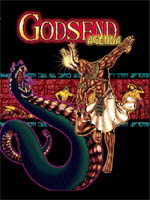 CG: Conveniently enough, what’s a brief overview of Godsend Agenda. It’s superheroes in space?
CG: Conveniently enough, what’s a brief overview of Godsend Agenda. It’s superheroes in space?
JG: No, because funny enough, it all just happens on Earth. If gods walked the earth, they’d be considered superheroes now. And what the Godsend Agenda is, it’s basically this Galactic Empire, their way of taking over planets. Basically they will come to a planet and instead of bringing millions of troops to pacify the populace of the planet, they’ll bring 12 people. They’ll set themselves up as gods and then the populace will just kind of fall in line, because they’ll fight amongst themselves until it’s over. And they’ll wait like a couple thousand years for it to happen, because these guys are essentially immortal. And in Godsend Agenda, what happens is a prison ship from that empire crashes on Earth, the prisoners get out, and they use the Godsend Agenda to set themselves up as gods. So you’ve got the Egyptian pantheon, the Greek pantheon, and all these people were actually prisoners or political dissidents on this prison ship. So the game can be played in a bygone era, so you could play it as a fantasy game where you’re a god back in the olden days or-
CG: The PCs all take the role of a god?
JG: They can or they can just be superheroes in this world, because essentially if these gods actually did live today with the media and multimedia and stuff, you could still be a god, and you’d still be worshipped. And that’s where you get more of your power from is from glory. The more glory you have the more power you have, but they would be pop stars. If Hercules lived today and people were telling his tales, you’d see him on red carpets and at places, but you know, he might go out and punch someone in the face or pick up a car and throw it. So you have that with Godsend Agenda and there’s a secret history behind it.
CG: There is a lot of overlap between the two, huh?
JG: Yes, because that’s one thing that I really like is just mythology.
CG: And the Greek gods were petty and it’s the same way with Godsend Agenda, right?
JG: Well yeah. Well, because they’re just people. They’re not necessarily a higher life form; they’re just a life form that knows how to-. Even with humans, you can learn how to use this energy called ka in Godsend Agenda and once you learn how to use it, you can use it for good, you can use it for bad.
CG: Like the Egyptian ka?
JG: Yeah, yep. Like where you have your ba and your ka. Basically I just took ka, that piece of your spirit and just made that an energy form in Godsend Agenda where like, if you learn to manipulate it, you can do anything you want and that’s what they do. But yeah, mythology runs through all the games. Like right now we’re working on Atlantis, which was an older game, made by the same guy who made Talislanta. So I bought the rights to that and I’m going to rerelease that soon, which is funny ’cause all three games have Atlanteans in them. All three games have Atlantis in them. So there must be something going on with Atlantis that I’m trying to work out that eventually I will work out and my work will be done on this planet and I can have my apotheosis and go someplace cool.
CG: Who’s Khepera Publishing? Is that you and-
JG: Just me. It’s basically me. Mike Fiegel has a company called Aethereal Forge and through that he produced Ninja Burger. So he does that. He created Ninja Burger, he did a role playing game called Vox, which is really awesome. He also did a game called Power Girl, which is kind of like a superheroic kind of Sailor Moonish game, but he’s really really clever, Mike is, and he comes up with a lot of really cool ideas. I liken him to-, there’s John and then there’s Paul from the Beatles. So that’s what we do. But…look what happened to John. So I don’t know which one of us is John. I’m going to say that he is so that I can just grow old and turn into an old lady like Paul McCartney. Yeah, that’s what we do.
Jerry Grayson’s Favorite D&D World: Dark Sun and Experience Playing Hellas Himself
CG: So, right now though, you’ve played so many games, but tonight as we wrap up, you’re about to play Dark Sun, 2nd Edition.
JG: Oh yeah! This is my favorite D&D world. There’s Dark Sun and then there’s probably Greyhawk, which are probably my two favorite D&D game worlds and even though 2nd Edition gets punched in the eye a lot, it gets choked out and throttled like-, yeah I really like 2nd Edition over 3rd Edition or 4th Edition. I don’t know if it’s because I’m older, like “Back in my day, we used to,” but it’s easy. I can look at a stat block in 2nd Edition and completely understand what the monster does as opposed to going “Ok, he’s got a mobility feat, he’s got this move through this-” It’s like what the hell does all this stuff do? In this, I know that this huge spider has Type A poison. It will kill you or you’ll take 15 points of damage and that’s it. It’s simple.
CG: You’re playing 2nd Edition straight up with THACO and everything?
JG: Oh, we’re going hardcore, man. I’m going Iron Man. I’m attempting to run this game as written. So as it is written is the way I will run it, with all its weird warts and idiosyncracies, it will run that way. Hopefully it will run well, but going back and actually playing it now, since you start playing all these other games, when you look at some of these rules they actually make perfect sense. You know, when you’re a little kid and reading them, you’re like “That doesn’t make sense.” or “This should work like this and if I was doing it, it’d do it like this.” But when you go back and play it now, you’re like “Oh, this is actually kind of awesome. I wish I could rewrite this game and make it my own.” Which I thought about doing today. I was thinking “I should just rewrite 2nd Edition.” And I was like no, because that would actually take real time.
[Players have been showing up for his Dark Sun game.]
Jerry’s Player: And involve a lawsuit.
JG: No, well not if I changed it enough. If I changed it enough, it’d be Jer Edition. It’d be A Jer and Jer. We could be playing some J&J in here, but yes, Dark Sun, which is probably my favorite D&D fantasy world. I don’t know if you’ve ever played it, but yeah, it’s a post-apocalyptic fantasy game. It’s what happens after all the cool stuff happens and this is what you end up with after that big battle to save the world in other role playing games, this is what you’re left with. It’s just a burnt-out wasteland with slaves and cannibals and just weird stuff. You could shoot a Tupac video in Dark Sun with people with goggles.
CG: “California”…
JG: Exactly, you could have people with baseball bats with spikes in them and yeah, they actually got weapons like that in Dark Sun. So it’s a post-apocalyptic fantasy game.
CG: And you’re running it, but did I hear you correctly that you have only played Hellas twice now?
JG: That I’ve not run?
CG: Right.
JG: Yes. Haha. I’ve only got to play it twice that I’ve not run it. Other games, Tony ran Godsend Agenda, I got to play that, and I think that was probably the only time I got to play that one. Yeah, every other game I’ve managed to be a player in. In Nomine, we used to take turns, like you’d get extra experience points if you ran the game, so then I’d play a character and someone else would run the game. But yeah, Hellas I’ve only got to play twice and I’ve realized it really sucks, so I wouldn’t play that game. That game’s ridiculous. I’d rather play, what’s a good game? Fantasy Imperium, remember that game? [Someone suggests Star Children] Star Children‘s actually pretty awesome. But yes, I’d definitely play that one. Yeah, I don’t get to play. I’d like to play Hellas more. I’m curious, because I come up with these characters when I’m writing ’em. I’m like “Yeah, that guy would be bad ass!”
CG: Who wrote all the stories in Hellas?
JG: That’s Mike. Mike did all the fiction. All the other stuff that makes no sense, like the mechanics and all that crap, I wrote. All the fiction, those chapter pieces, he wrote.
Khepera Publishing’s Relaunch of Atlantis
CG: What would the street date be for Atlantis?
JG: Well, Atlantis comes after I get done with the Revised Hellas and Sword and Sandals. I’d like to be done with those by the end of June. I’d like to be done, but, you know, that doesn’t mean anything. I’d like to be done with both of those by the end of June and complete Atlantis. Because I’ll fiddle with it, but I haven’t gone hardcore into that one. That, in theory, could be done by the end of the year. The system’s written, because it’s going to use-, because originally I wrote the system [to be used] for Atlantis. We cleaned it up, then we started playing Godsend Agenda with it, cleaned it up some more, now I’m putting that into Hellas and so all those games will run using the basic core, but they won’t necessarily be compatible because Godsend Agenda‘s a completely different animal than Hellas is, which will be a completely different animal from what Atlantis is. Atlantis is going to be kind of Conan-y. It’s going to be that weird sword and sorcery. Like 70s sword and sorcery fiction is what I’m trying for with that one. Like when you’d read books from Tor or Daw, back in like the 80s and 70s, the way they were just, you know, nothing was written to be a three-part book. You don’t get any Wheel of Time or Game of Thrones stuff. It was just weird shit that was happening out in the wilderness. They would cut something up and somebody’d do a spell and they would swallow half a planet. It’s just weird. And that’s what I want to do with that. I want to do an old school Da or Tor book that is Atlantis. That’s what I want to do. And then people will hate it because there’s existing fans for the original game. You know what I will do? I will George Lucas them away from Atlantis. I will make something that will so completely annoy them because I got rid of all the elves, there’s no elves, got rid of all the dwarves, and it’s just your goofy sword and sorcery, you know, Fahfrd and the Grey Mouser, Conan, Elric, and all those crappy novels you read in like the early 80s, late 70s, just bad wrong fun. That’s what I want to do.
All Hellas and Godsend Agenda images copyright Khepera Publishing, used with permission.
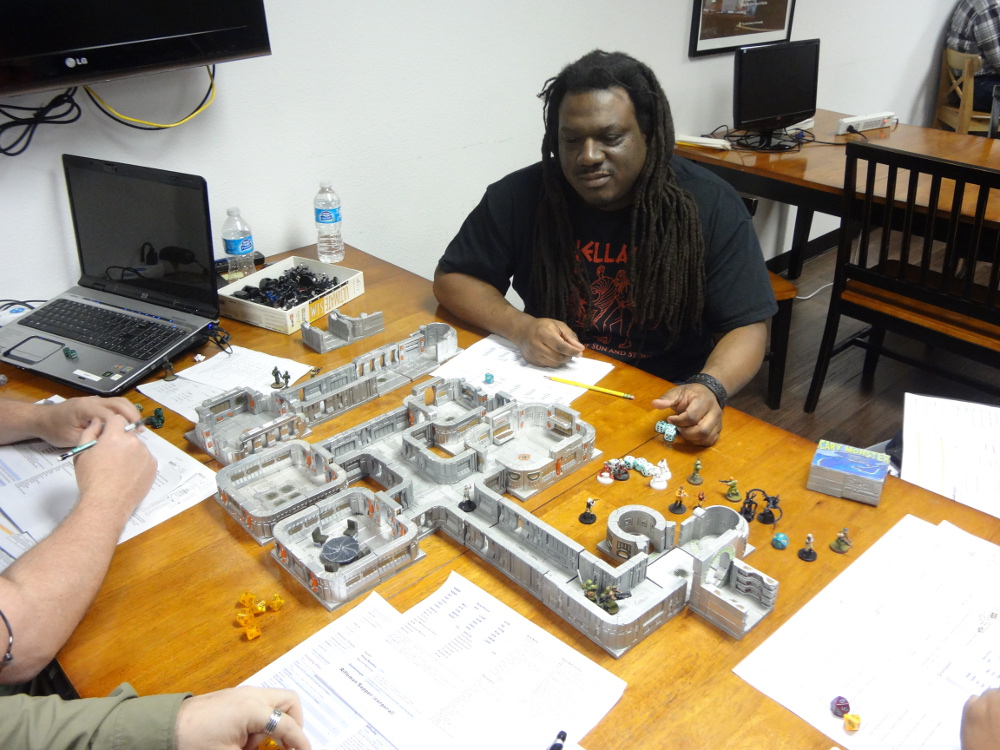
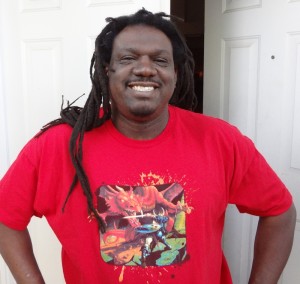
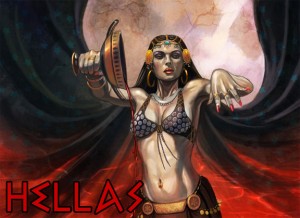
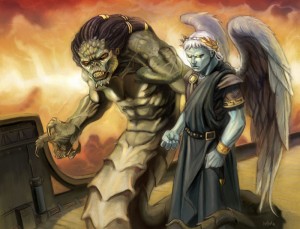
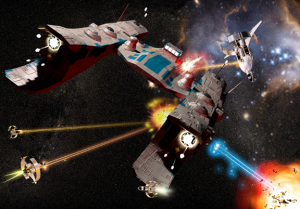
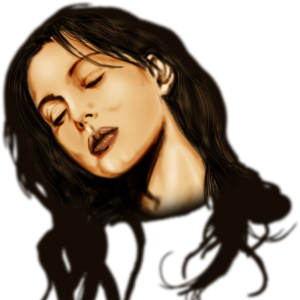
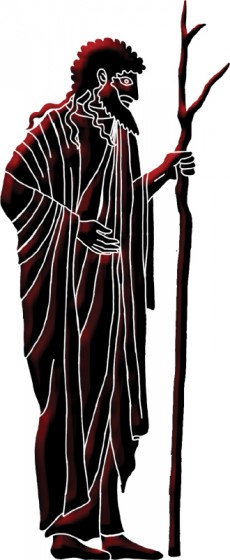
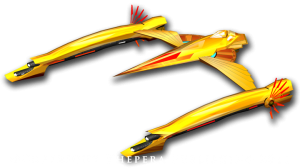
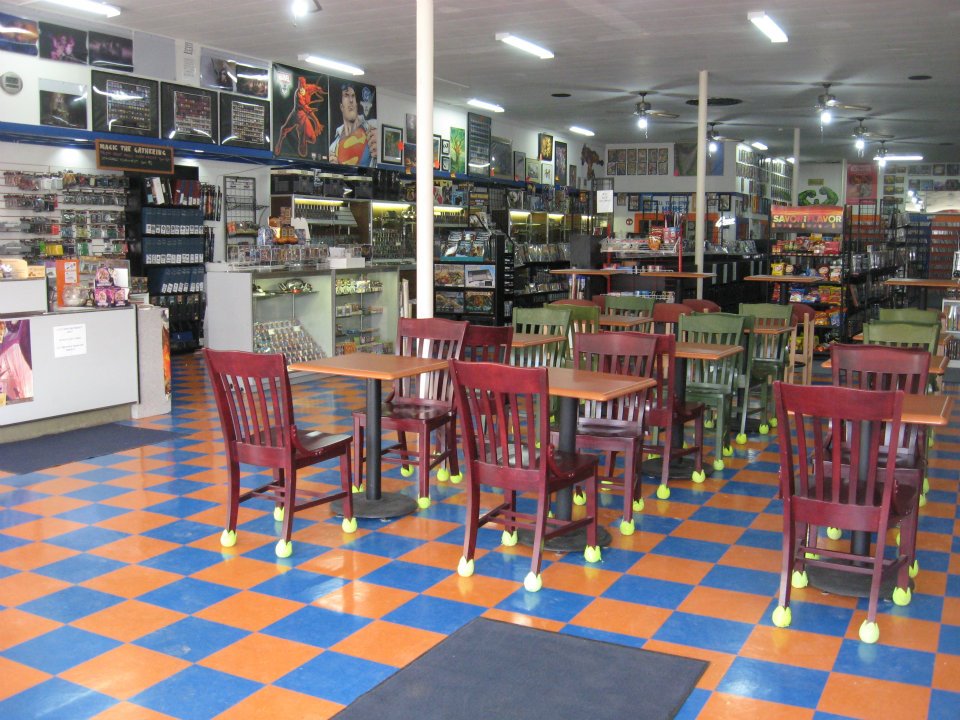
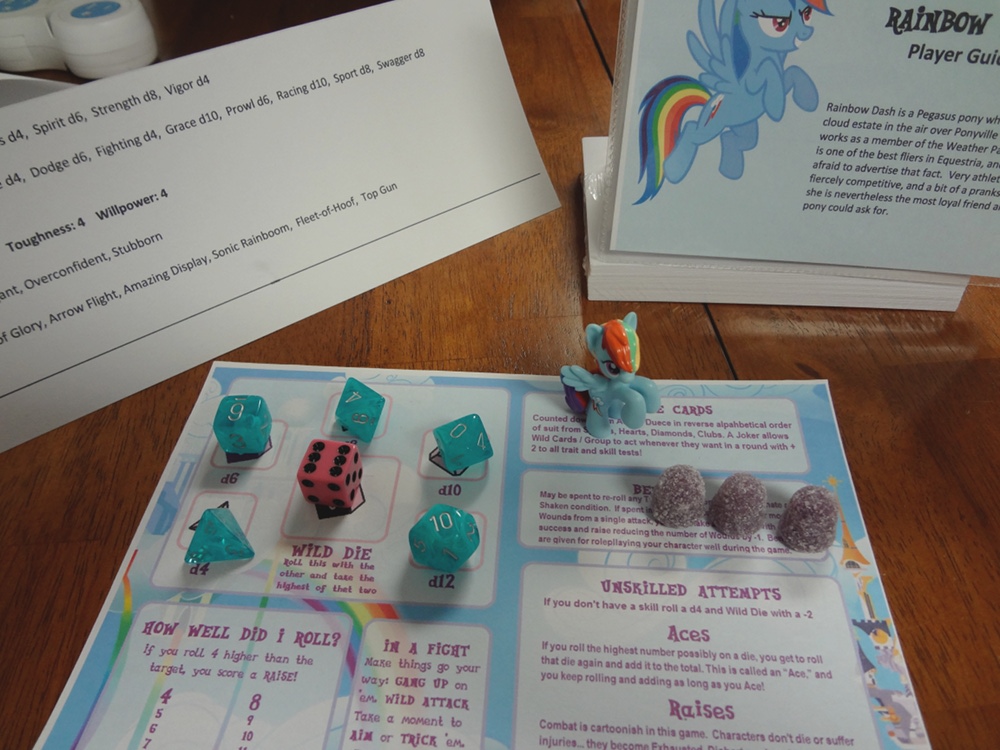
Pingback:Vegas Game Day – November 10 | Craven Games: In-Depth Tabletop Games and LARPing Coverage